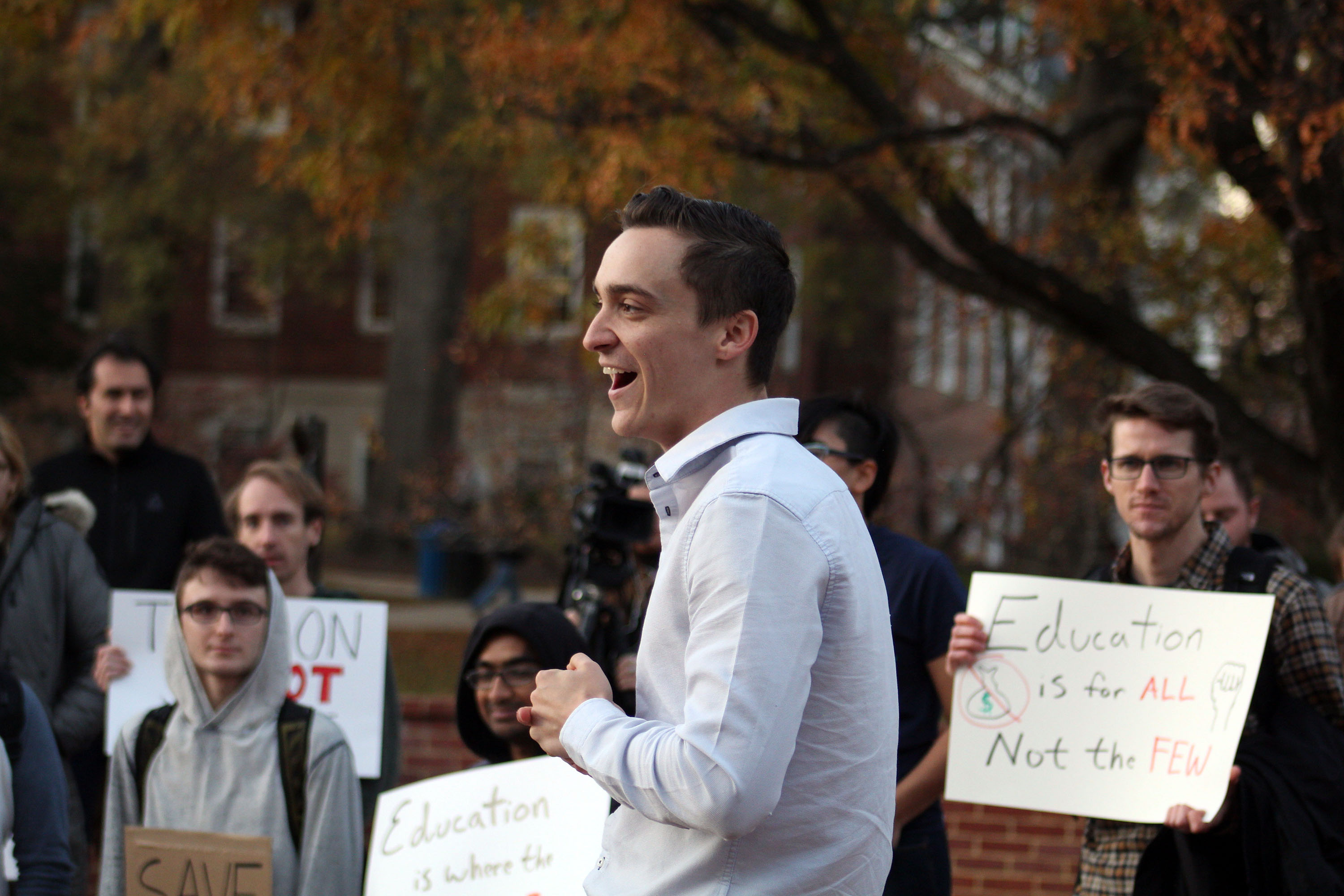The GSG voted Friday to add a diversity and inclusion vice president to its executive board and remove the position of committee affairs vice president, transferring its duties to the chief of staff. Students will vote to fill this position and all others in the Graduate Student Government general elections this April.
Dwayne Parker, who has served as committee affairs vice president since July, will continue to serve until the 2018 fiscal year ends in June, at which point his position will be removed from the executive board.
Parker did not attend the GSG meeting Friday and did not respond to request for comment. However, GSG President Michael Goodman told the body that Parker did not offer any objections when the executive board discussed the bill on March 1.
[Read more: “People are really struggling”: grad student survey shows widespread financial insecurity]
Come July, the chief of staff will become responsible for the duties presently held by the committee affairs vice president, which include overseeing committee operations and serving as a liaison to graduate student members of University Senate committees, according to GSG bylaws. Caden Fabbi, the author of this bill, currently serves as chief of staff.
Fabbi also authored the bill establishing a diversity and inclusion vice president. Whoever serves in this position will “consistently look at things through a diversity and inclusion lens,” he said.
“It’s no secret that there are racial tensions on campus and there have been for a long time,” he said.
Richard Collins, a black Bowie State University student, was killed on this campus last year in what is now being tried as a hate crime. Fabbi said that in the wake of the killing, it’s important to figure out “how as a graduate student body we can come together and create a better campus climate for people of diverse backgrounds.”
[Read more: UMD’s Center for Diversity and Inclusion hosts summit on issues facing college campuses]
Business and Management Representative Liule Han was one of six representatives to vote against the bill creating the new position, though he said he supports diversity and inclusion as a Chinese international student.
Han said he thinks the GSG should use funding from the student activities fee all graduate students have to pay in ways that directly benefit graduate students. Of the $35 activities fee all graduate students must pay, $15 goes toward funding the GSG, said Financial Affairs Vice President Devin Scott.
In fiscal 2018, the budget allotted for each of the seven GSG vice presidents to be paid $1,334 per semester, Scott said. The Budget and Finance Committee will work to determine how much vice presidents will receive per semester for fiscal year 2019 in June, he said.
The body also voted 8-7 with one abstention to amend their bylaws to create a position for a labor affairs vice president, who would serve as a liaison between this university and the GSG on graduate labor-related issues. Legislative Affairs Vice President Adria Schwarber initially announced at the meeting that this vote had passed, but the Governance Committee ruled it as a failure on March 13 because the two-thirds majority required to amend the bylaws was not met. For the bill to have passed, at least 10 representatives would have had to vote in favor of it.
Public Relations Vice President Katie Brown, the bill’s author, said she is disappointed it did not pass, but is thrilled that a diversity and inclusion vice president will be added to GSG’s executive board.
“Labor rights, and especially things like collective bargaining, oftentimes benefit some of our most vulnerable populations,” she said. “So I’m happy that the vice president of diversity and inclusion will be a position that can tackle some of these issues also.”
In February, more than 100 University System of Maryland graduate students and faculty members submitted testimony to the Senate Finance Committee in support of a bill that would give graduate student employees at system institutions collective bargaining rights.
The House and Senate committees where the bill has been heard will decide whether to send it to the House and Senate floors.



